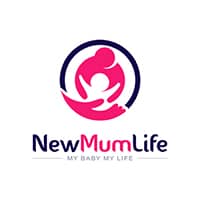To carry a kid inside her womb, a woman must fulfill a number of conditions. She needs to completely overhaul her life in order to make the necessary adjustments to fix her health routine. A lady needs to reinvent herself if order to continue her pregnancy in a healthy way. She must transform her body into a sacred space where a brand-new life can flourish in unblemished health. No matter if you are pregnant or trying to conceive, maintaining good personal hygiene is essential. Personal hygiene during pregnancy is crucial.
Therefore, we've put up a list of different tips on personal hygiene for antenatal mother that you can use to keep your skin as clean as possible, and reduce your risk of running into problems. Follow these tips and make your pregnancy happy and healthy!
Why is Personal Hygiene During Pregnancy So Important?
It goes without saying that hygiene is an essential component of self-care at all times, but during pregnancy, this everyday task takes on a whole new significance. This is due to the significant hormonal changes the pregnant woman's body goes through. The effects and severity of these can vary from one expectant to another and can cause increased sweating, vaginal discharge, decreased lubrication, nipple leaks, and more.
Poor hygiene can increase your chance of exposure to a variety of bacteria and organisms, all of which can cause you to become ill since your immune system isn't as powerful as it once was. At his most susceptible developmental stage, your kid may contract certain illnesses, which could result in long-term abnormalities. Now, let's take a look at how you can keep up personal hygiene throughout the pregnancy.
How to Maintain Hygiene During Pregnancy
Oral Hygiene
Dental hygiene and pregnancy are closely related since your diet has an impact on the diet of your unborn child. Care for your teeth and gums become even more crucial when your body goes through a variety of changes. Oestrogen levels may rise, which might hurt quite a deal if they swell up and become more sensitive. Be sure to brush your teeth twice a day, no matter what. Flossing can help you prevent the growth of plaque, which is something you should strive to achieve.
Skin and Hair Hygiene
Due to hormonal changes, sweating more than usual during pregnancy increases the risk of contracting skin infections. Additionally, as the pregnancy goes on, women put on weight, which causes the body to develop numerous folds. In order to prevent infection, you must pay closer attention to making sure the skin in the creases is always dry.
Choose soaps and shampoos that are manufactured from natural oils and ingredients for yourself because they are safer and kinder to your skin. The simplest and safest approach to maintain hygiene, though, is to take a bath. Chemical goods may create an increased allergic reaction since pregnant women's skin is more sensitive. Women are therefore recommended to avoid using chemicals like hair dye or other chemical like for hair straightening/treatments.
Your body loses a lot of nutrients to support the child's growth, and these nutrients have an impact on your skin in several ways. Additionally, during pregnancy, the oil glands in the hair get a boost, which makes oily hair a common problem for most pregnant women. As a result, bathing your hair frequently is necessary to get rid of excess oil and preserve hair texture. Avoid staying in the water for long periods of time because the skin can react swiftly to any extremity.
Breast Hygiene
As their pregnancies progress, different women describe varying experiences, and some begin to have breast leakage. The majority of this is colostrum or first milk. Once more, maintaining your dryness is crucial. Use breast pads if necessary and use cotton undergarments. Avoid massaging your breasts while treating itchy, dry, or irritated nipples at home with any light oil. Massage may stimulate the mammary glands, which would make the issue worse.
Vaginal Hygiene
Pregnant women tend to have greater vaginal discharge, which can occasionally promote bacterial development. If left untreated, it might result in "bacterial vaginitis," which can spread to the baby and complicate the mother's labor and delivery. You may easily maintain your personal hygiene by wearing just pure cotton underwear and avoiding jeans or pants that are too tight to allow air to circulate between your clothing and skin. This will prevent bacterial growth in your vagina and keep it dry.
Since staying dry should be your main priority, feel free to change your underwear as often as you choose. Use a panty liner that you may change every two to three hours if you experience pee leaks during the last few months because the larger uterus presses against the bladder.
Below are some more vagina hygiene suggestions for maintaining proper personal hygiene throughout pregnancy. To ensure a safe pregnancy, read each instruction and follow it.
1. Stick to Cotton Undergarments
Pregnant women should avoid wearing lace underwear and thongs. Instead stick to cotton underwear. Sweat is easily absorbed by cotton undergarments, which also allow for better skin ventilation. Underwear made of synthetic materials, however, can serve as a breeding ground for bacteria. Infections of different kinds and skin irritation may occur close to the private area.
2. Put on a Pantyliner Throughout Your Final Trimester
As your pregnancy draws to a close, the baby's growth causes your uterus to enlarge. This could lead to episodes of urinary leakage. Try to use a panty liner in this circumstance that you can easily change every two to three hours without feeling uncomfortable.
3. Trim Pubic Hair
Trimming your pubic hair is recommended over waxing or epilating it because your intimate area can already be feeling irritated. All risks of damage and allergic reactions are eliminated. Avoid using chemical treatment during your pregnancy.
4. Don't Wear Tight Clothing
You might feel the need to show off your growing baby with a tight bodycon skirt or mom jeans. But it's a good idea to choose maternity clothing that breathes. Your private regions' skin folds may itch if you wear tight-fitting clothing or inners with lacy details. This could raise the risk of vulvovaginal infections and the unpleasant condition vulvodynia.
5. Keep Your Vagina Clean and Dry
Despite being a self-cleaning organ, the vagina can nevertheless be cleansed with plain cold water. Using an intimate wash is acceptable if a specialist advises it. The pH balance and vaginal flora may be further disrupted if you purchase any over-the-counter laxatives on your own. Do not forget to pat the private area dry with a clean towel because moisture might promote bacterial and fungal growth there.
6. Avoid Scented Products
Avoid using common soaps, gels, or items with strong scents on your vaginal area since they disturb the pH balance and destroy the beneficial bacteria that keep the vagina healthy, making you more susceptible to infections. Because of this, the neighboring delicate skin could itch. Never apply a scented intimate wash to the vulva or the vaginal wall.
7. Avoid vaginal douche
Refrain from using a vaginal douche, which involves flushing water up the vagina. By doing so, you risk removing good microorganisms and developing an infection. When wiping off your bowels after they have been emptied, always wipe from front to back.
Final Words
Every stage of life needs proper cleanliness, which is one factor. It is advantageous to focus on its specifics while you are expecting because its importance increases. It is best for you to be clean and healthy so that you can give birth to your child in the same way. In a short while, you'll be nursing him from your breasts while holding him in your arms. In order to prevent any problems for either the mother or the child, the mother should take all necessary precautions for maintaining intimate health at this crucial stage of the baby's development. We hope you found our post helpful, share your views in the comment section. Plus, how you used to maintain personal hygiene during pregnancy, share below.
About The Author

NewMumLife Team
NewMumLife is a parenting website for moms, dads and child care. We aim to offer a place to connect parents and parents-to-be for all types of parenting advice and suggestions to the questions they normally face. Our content is for the parents and by the parents where they share their personal experiences to benefit our parenting community.

